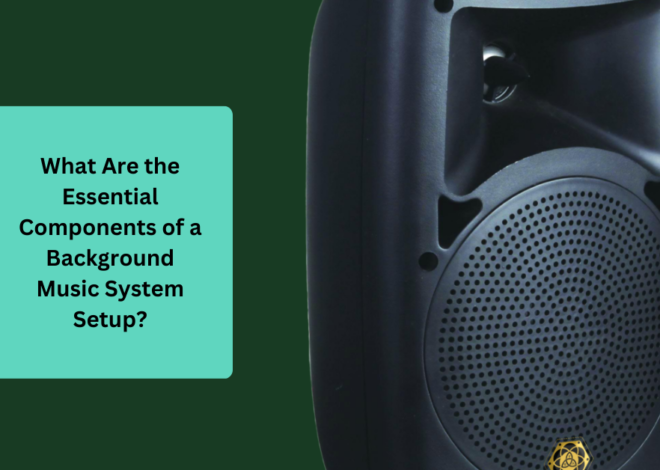
Why Your Outdoor Plants Keep Dying and How to Save Them
Imagine spending time and effort planting a beautiful garden, only to watch your outdoor plants wither away. It’s frustrating and disheartening to see your hard work go to waste. But don’t worry, there are reasons why this might be happening and ways to save your plants before it’s too late.
In this blog, we’ll look at the most common reasons why your outdoor plants are dying and how to save them. Whether improper watering techniques to insufficient sunlight, we’ll guide you through the steps needed to diagnose the problem and nurse your plants back to health. With the right care, your garden can thrive, turning your outdoor space into a lush, green haven.
Why Do My Outdoor Plants Keep Dying?
When you’re outdoor plants start dying off, it can be challenging and depressing. The truth is that multiple factors could be at play, and identifying them is the first step toward saving your plants. Here, we’ll explore the most common reasons for plant failure and offer solutions to help you revive your garden.
10 Major Reasons Why Outdoor Plants Keep Dying and How to Save Them
1. Overwatering
Overwatering is one of the most common reasons why outdoor plants die. When plants receive too much water, their roots can suffocate due to a lack of oxygen, leading to root rot.
- Solution: To prevent overwatering, ensure your soil has good drainage and water only when the top inch of soil is dry. Use mulch to retain moisture and reduce the frequency of watering.
“The best time to water your plants is when they need it.”
2. Underwatering
Just as overwatering can harm your plants, underwatering can cause them to dry out and die. During hot weather, outdoor plants lose more water through evaporation and may need more frequent watering.
- Solution: Check your plants regularly and water them deeply, which ensures the water reaches the roots. Mulch can help with keeping the soil moist.
3. Poor Soil Quality
Soil that lacks nutrients or has a poor structure can lead to plant failure. Plants rely on soil for essential nutrients, and if these are not available, the plants will struggle to survive.
- Solution: Enhance soil quality through using organic materials like compost or manure. Regularly test your soil’s pH and nutrient levels to ensure it fulfills your plants’ demands.
4. Inadequate Sunlight
Sunlight is crucial for photosynthesis, and without enough light, plants cannot produce the energy they need to grow. Placing shade-loving plants in full sun or sun-loving plants in the shade can lead to their decline.
- Solution: Understand the light requirements of each plant and position them accordingly. If necessary, trim back trees or shrubs that may be blocking sunlight.
5. Pests and Diseases
Outdoor plants are vulnerable to a variety of pests and diseases, which can weaken or kill them if not addressed promptly. Common pests are fungi, spider mites, and aphids.
- Solution: Regularly inspect your plants for signs of pests and diseases. Use natural or chemical treatments as needed, and remove infected plants to prevent the spread of disease.
“A healthy garden needs regular being vigilant for potential hazards.”
6. Incorrect Planting Depth
Planting your plants too deep or too shallow can cause stress and lead to poor growth. Roots need to be placed at the correct depth to access water and nutrients.
- Solution: Follow planting guidelines for each species. Ensure the root ball is level with the soil surface and fill in with soil gently, avoiding compacting the roots.
7. Temperature Extremes
Extreme temperatures, whether too hot or too cold, can stress plants and cause them to die. Young plants and those not suited to your climate are especially vulnerable.
- Solution: Choose plants that are hardy in your climate zone. Protect plants from heat by providing shade and from cold by using frost covers.
8. Fertilizer Misuse
Your plants can suffer if you add fertilizer in excessively or improperly. Under-fertilization can produce nutrient deficiencies while over-fertilization might cause nutrient burn.
- Solution: Follow the recommended fertilizer dosage for your plants. Apply it during the growing season and avoid fertilizing during dormancy.
9. Root Bound
When plants outgrow their containers or are planted in confined spaces, their roots can become root-bound, leading to stunted growth and eventual death.
- Solution: Repot container plants into larger pots when needed, and space garden plants appropriately. Gently loosen the roots before planting.
10. Weed Competition
Weeds compete with your plants for water, nutrients, and sunlight, leading to poor growth and even plant death.
- Solution: Regularly weed your garden to reduce competition. Mulching can also help stop the growth of weeds by blocking sunlight.
What Are the Best Outdoor Plants for Harsh Climates Like Dubai?
Choosing the right outdoor plants for your garden is crucial for ensuring their success in your environment. Dubai’s climate, with its hot summers and mild winters, requires hardy plants that can withstand the heat and occasional drought. Here are some of the best outdoor plants in Dubai to consider:
- Bougainvillea: Known for its vibrant colors, Bougainvillea is a drought-tolerant plant that thrives in full sun and well-drained soil.
- Frangipani: Frangipani offers fragrant flowers and is well-suited to Dubai’s climate, requiring minimal water and thriving in direct sunlight.
- Date Palm: A staple of Middle Eastern landscapes, Date Palms are extremely hardy and can survive the intense heat and limited water supply.
- Oleander: Oleander is a versatile plant that blooms in various colors and can withstand high temperatures, making it ideal for outdoor spaces in Dubai.
- Jasmine: Jasmine adds a sweet fragrance to your garden and is easy to care for, flourishing in the warm climate of Dubai.
How Can You Revive Dying Outdoor Plants?
If your outdoor plants are showing signs of decline, don’t give up just yet. You can revive them and get their health restored through a few different ways.
- Assess the Problem: Start by identifying the specific issue affecting your plants. Identify signs of diseases, pests, or environmental stress.
- Prune Dead or Damaged Parts: Remove any dead or damaged leaves, stems, or branches to redirect the plant’s energy toward new growth.
- Improve Soil Conditions: If poor soil is the issue, amend it with organic matter to improve drainage and nutrient content.
- Adjust Watering Practices: Modify your watering schedule based on the needs of your plants and the current weather conditions.
- Provide Support: If your plants are top-heavy or have weak stems, use stakes or cages to support them as they recover.
Why Is Proper Plant Spacing Important?
Proper spacing is critical for the health of your outdoor plants. When plants are placed too closely together, they compete for essential resources such as water, nutrients, and sunlight. This competition can lead to stunted growth, increased susceptibility to pests and diseases, and even plant death.
- Solution: Follow recommended spacing guidelines for each plant species. Allow enough room for your plants to grow and spread their roots. Proper spacing also improves air circulation, reducing the risk of fungal infections.
How Can You Protect Your Plants from Pests?
Pests can be a major threat to your outdoor plants, causing damage that ranges from minor blemishes to complete plant death. Protecting your plants from pests involves both prevention and treatment.
- Solution: Keep your garden clean and free of debris, as this can attract pests. Use predatory insects like ladybugs to control pest populations. If pests are already present, consider using organic or chemical treatments to eliminate them.
Why Choose Backyard Buys?
Backyard Buys is your reliable partner for creating a productive garden in Dubai. As the largest dealer for the best outdoor and the best indoor plants in Dubai, we provide a diverse selection specifically suited to the local climate. Our team of experts is dedicated to helping you choose the best plants for your outdoor space, as well as providing you with the knowledge and resources you need to properly care for them. Whether you want to establish a new garden or improve an existing one, Backyard Buys has everything you need. Allow us to help you bring your garden to life.
Let’s Recap
To keep your outdoor plants healthy and alive, you must first recognize the common difficulties and know how to manage them properly. You can avoid plant death by detecting warning signs and proactively maintaining a beautiful, vibrant garden. Whether you’re suffering from hydration concerns, pests, or soil problems, remedies are available. With the correct care and attention, your outside plants can thrive in Dubai’s unique climate, giving you a green oasis to enjoy all year round.
Be sure to check back for more exciting news on ChemHubGlobal!












